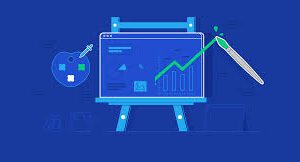Artificial Intelligence (AI) has become the backbone of innovation in nearly every industry. In 2025, AI technologies are no longer seen as experimental but as essential tools for businesses striving to enhance productivity, optimize operations, and maintain a competitive edge. From automating mundane tasks to offering data-driven insights that fuel smarter decision-making, AI is fundamentally transforming the global industrial landscape.
AI-powered platforms have now integrated into key aspects of businesses, including customer service, marketing, and sales, driving unprecedented efficiency. The ability of AI to rapidly analyze vast amounts of data and perform complex operations with precision is reshaping how industries operate. As a result, organizations worldwide are looking to AI not just as a tool, but as a catalyst for scalable growth and innovation.
In this article, we’ll dive into some key areas where AI tools are making significant impacts, spotlighting advanced platforms which have become leaders in their respective fields.
AI-Driven Automation: Streamlining Operations Globally
One of the most transformative effects of AI tools in 2025 is their ability to automate tasks that were once manual and time-consuming. Industries across the board, from healthcare to finance, are leveraging AI-driven automation to streamline their workflows and reduce operational costs. This has been particularly impactful in customer service, where AI-driven platforms like Dasha AI are leading the charge.
Dasha AI, a conversational AI platform, is revolutionizing customer engagement by automating voice and text-based customer service interactions. This AI tool is designed to carry out complex conversations that feel natural to users, improving response times and customer satisfaction while reducing the need for human agents. The ability to handle high volumes of calls and inquiries efficiently allows businesses to focus on strategic priorities without sacrificing customer support quality.
Data-Driven Marketing: Precision Campaigns at Scale
Marketing has always been a data-intensive field, and AI’s ability to process and analyze massive amounts of data has taken marketing precision to new heights. In 2025, AI-powered marketing platforms are enabling businesses to target their audiences with unparalleled accuracy. AI can identify patterns in customer behavior and predict which marketing strategies will deliver the best results, all in real-time.
One standout tool in this space is Leadzai, an AI-powered platform that simplifies lead generation by automating advertising campaigns. Leadzai’s AI identifies the best opportunities to reach potential customers, automatically managing ad placements and budget allocation to ensure optimal results. This type of automation allows businesses to achieve higher conversion rates without the need for constant manual intervention, making it a critical tool for companies looking to enhance their digital marketing efforts.
Enhancing Sales with AI: Smarter, Data-Driven Lead Generation
AI is also redefining the way sales teams operate. Traditionally, sales efforts have relied heavily on human intuition and manual lead generation. However, AI tools in 2025 are offering smarter solutions by analyzing data patterns to predict which leads are most likely to convert, enabling sales teams to focus their efforts more effectively.
An example of an AI tool transforming sales is StreetText. Specializing in lead generation, StreetText uses AI algorithms to create hyper-targeted marketing campaigns, particularly in the real estate and service-based sectors. By automating the lead generation process and providing predictive insights into customer behavior, StreetText helps sales teams close deals faster and with more confidence. The platform’s success lies in its ability to pinpoint high-quality leads that are more likely to convert, significantly reducing the time and effort required by sales teams.
AI in Manufacturing: Increasing Productivity and Quality Assurance
In the manufacturing industry, AI tools have evolved to boost productivity while maintaining high standards of quality. Predictive maintenance powered by AI is a key innovation in 2025, as it allows manufacturers to predict equipment failures before they occur, minimizing downtime and optimizing output.
AI also plays a pivotal role in quality assurance. Machine learning algorithms are increasingly being integrated into production lines, where they can inspect products for defects more quickly and accurately than human workers. This ensures higher product quality and reduces waste, leading to cost savings and improved efficiency.
AI in Healthcare: Revolutionizing Patient Care and Administrative Efficiency
The healthcare industry is one of the biggest beneficiaries of AI technology. From assisting in complex surgeries with precision robotics to providing faster, more accurate diagnostics, AI is transforming patient care. AI tools in healthcare are also streamlining administrative processes, reducing the burden on medical staff, and allowing them to focus on patient care.
For instance, AI-powered systems can automate the scheduling of appointments, manage billing, and even keep track of patient records, reducing the chances of human error and improving overall healthcare efficiency. With the integration of AI, healthcare providers can offer more personalized care based on predictive analytics, ultimately leading to better patient outcomes.
Conclusion: AI Tools as a Global Catalyst for Efficiency
As we progress through 2025, AI tools are at the forefront of revolutionizing how industries operate across the globe. Platforms like Dasha AI, Leadzai, and StreetText are just a few examples of how AI-driven solutions are transforming customer service, marketing, and sales, among other sectors. By automating routine tasks, providing data-driven insights, and enhancing operational efficiency, AI has proven to be a critical component of the modern business ecosystem.
The future of AI in industry holds even more promise, as these tools continue to evolve and expand their capabilities. By adopting AI, businesses can not only improve their day-to-day operations but also position themselves for long-term growth and success in an increasingly competitive global market. AI is no longer just a luxury—it’s a necessity for businesses looking to stay ahead in the game.




































